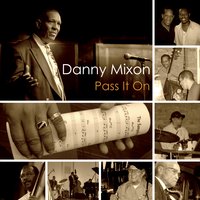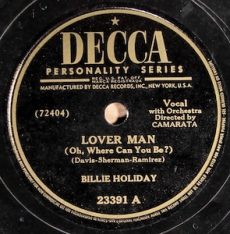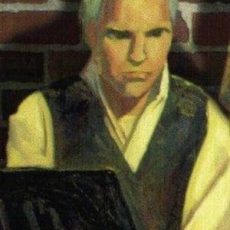
KEVIN BALES
By some measures, Kevin Bales was a latecomer to jazz, already 17 when he encountered the sounds and structures and became captivated by the freedom and corresponding challenges of the music. But if late to the party, he wasted no time in immersing himself in the celebration, declaring total commitment to what would be his life’s work and backing his announcement by resigning his job and designated career in computer programming. Kevin could commit to jazz with a reasonable degree of expectation. He was already an accomplished pianist, with classical chops refined since the age of 10. So accomplished he was invited to audition for the Atlanta Symphony Orchestra, then under the direction of its most storied conductor Robert Shaw, at age 16.
He has performed and/or recorded with Wynton Marsalis, Louie Bellson, Eddie Daniels, James Moody, Ben Tucker, Ira Sullivan, Marcus Printup, Sam Rivers, Nat Adderley, Bunky Green, Nathen Page and Jack Petersen. He counts among his mentors bassist Ben Tucker, multi-instrumentalist Ira Sullivan. He has recordings on Blue Note/Capital records. Ten years touring and recording with vocal iconoclast Rene Marie culminated in a Grammy Nominated album.
Cover: $25.00
More Posts: bandleader,genius,instrumental,jazz,music,piano,preserving,travel

Daily Dose Of Jazz…
Daniel Asbury Mixon was born August 19, 1949 in Harlem, New York City. He started off as a tap dancer, attending the Ruth Williams Dance Studio. Later, he attended the High School of Performing Arts with Dance as his major but soon switched to playing the piano after being inspired by visits with his grandfather to see jazz artists playing at the Apollo Theater.
In 1966, at the age of 17, Danny was invited to play with the trumpet player Sam Brown’s band backing Patti LaBelle & the Blue Bells in Atlantic City at Reggie’s Cocktail Lounge. After working with Joe Lee Wilsonfor three years beginning in 1967 then started to play regularly with Betty Carter during the years 1971–72.
Formed his own jazz trio, he recorded with the Piano Choir and worked with a variety of important jazz musicians including Kenny Dorham, Cecil Payne, Art Blakey’s Jazz Messengers, Frank Foster, Grant Green, Pharoah Sanders, and singers Joe Williams, Eddie Jefferson and Dee Dee Bridgewater.
1976 saw Mixon playing in Charles Mingus’ band. He then played with Dannie Richmond in the late 1970s, toured the U.S. with Yusef Lateef and played a few years with the Lionel Hampton Big Band. Since his twenties Mixon has worked continuously with Frank Foster as a pianist for the Big Band; Frank Foster’s Loud Minority, and his quartet the Non-Electric Company.
He plays piano on many recordings. He appears with Hank Crawford on Tight and After Dark and has also recorded with The Danny Mixon Trio and has recorded On My Way. In 2004 he was awarded as a legendary pianist by the National Jazz Museum in Harlem during their series Harlem Speaks honoring Harlem Heroes. He was also the musical director of the Lenox Lounge in Harlem, where he also regularly played with his trio, until it closed in 2012.
Pianist Danny Mixon, at 76, continues to perform and record.
More Posts: bandleader,history,instrumental,jazz,music,piano

Daily Dose Of Jazz…
James Benjamin Sherman was born on August 17, 1908 in Williamsport, Pennsylvania. He played piano in dance bands in the late 1920s and played on and off with Jimmy Gorham in the metropolitan Philadelphia area. In 1930 he began playing on a steamboat in Alphonso Trent’s band, then played in the 1930s with Peanuts Holland, Al Sears, Stuff Smith, Lil Armstrong, Putney Dandridge, Mildred Bailey, and Billie Holiday.
From the mid- to late ’30s Jimmy played in various swing groups but is best known for his hand in composing the jazz standard Lover Man, co-written with Jimmy Davis and Roger Ramirez, and was first recorded by Billie Holiday
He became the pianist and arranger for The Charioteers in 1938, remaining with the group until 1952. Following this he played primarily locally in eastern Pennsylvania. In 1960 he took up a residency at Miss Jeanne’s Crossroad Tavern in Chester County, Pennsylvania, where he played until shortly before his death.
Pianist and arranger Jimmy Sherman died on October 11, 1975 in Philadelphia, Pennsylvania.
More Posts: arranger,bandleader,composer,history,instrumental,jazz,music,piano

The Jazz Voyager
Thanks to the fates who had me buy a roundtrip ticket to New York’s JFK to head back into the city for a night at Birdland. The Jazz Voyager will be heading down to the Broadway District for the second set of the Oscar Peterson Centennial Celebration. However, it’s Harlem during the day to hit a couple of favorite spots, wander through the art galleries and see the evolution of the city.
This evening, Grammy-winning bassist John Clayton is joined by pianist Makoto Ozone and drummer Jeff Hamilton in celebration of their friend, colleague and mentor, Oscar Peterson. This is their first ever musical meeting at Birdland and will be performing his catalogue as well as their own compositions and beloved standards.
The cover charge ranges from $45.76 to $56.06 and this night promises to be something special.
Birdland is located at 315 W 44th St, New York, NY 10036. For more information contact the venue at https://www.birdlandjazz.com.
More Posts: adventure,bass,club,drums,genius,jazz,museum,music,piano,preserving,travel

Daily Dose Of Jazz…
Anthony Dowd was born on August 14, 1957 in Richmond, Virginia and started playing piano by ear at age six. Listening to what he heard on television he figured out on the piano before beginning formal lessons at age 12, studying for about five years. During high school he came across his parent’s big band records and got hooked on swing and looked for more jazz piano.
A few weeks after graduating Benedictine High School, Anthony got a job playing piano with a local big band, The Kings Of Swing, at Kings Dominion Amusement Park. That led to jobs with Busch Gardens and Carnival Cruise Lines. In the early 80s’ he moved to Hartford, Connecticut and honed his solo piano skills at local restaurants, modeling his playing after pianist Dave McKenna.
Returning to Richmond in 1985 he landed a residency leading the house trio at Benjamin’s Restaurant until 1992. In 1994, while playing at the Jefferson Hotel, he hit a high point. Frank Sinatra was in town for some concerts, and after finishing his dinner, joined Dowd at the piano and sang a few tunes. After playing in the mid-Atlantic region, he took a break from playing piano, moved to Tennessee and spent time raising his daughter.
He returned to Virginia in 2003 and found his reputation as an all-around pianist as strong as ever. His style mixes the playing of Oscar Peterson and Bill Evans. His debut release as a leader was Can’t Sleep in 2009. He is featured on bassist Jason Jenkin’s albums and with Roger Carroll on their duet release. He recorded with the Children’s Miracle Network
As an educator he has lectured on jazz piano history for the Retired City of Richmond Employees, Rappahanock Community College and the Northumberland Library System. He formed the Richmond Association of Jazz Artists to promote concerts.
Pianist, singer and songwriter Anthony Dowd, who has composed close to 60 songs, continues to perform, record, compose and sell his tunes to publishers.
More Posts: bandleader,composer,history,instrumental,jazz,music,piano,songwriter,vocal



